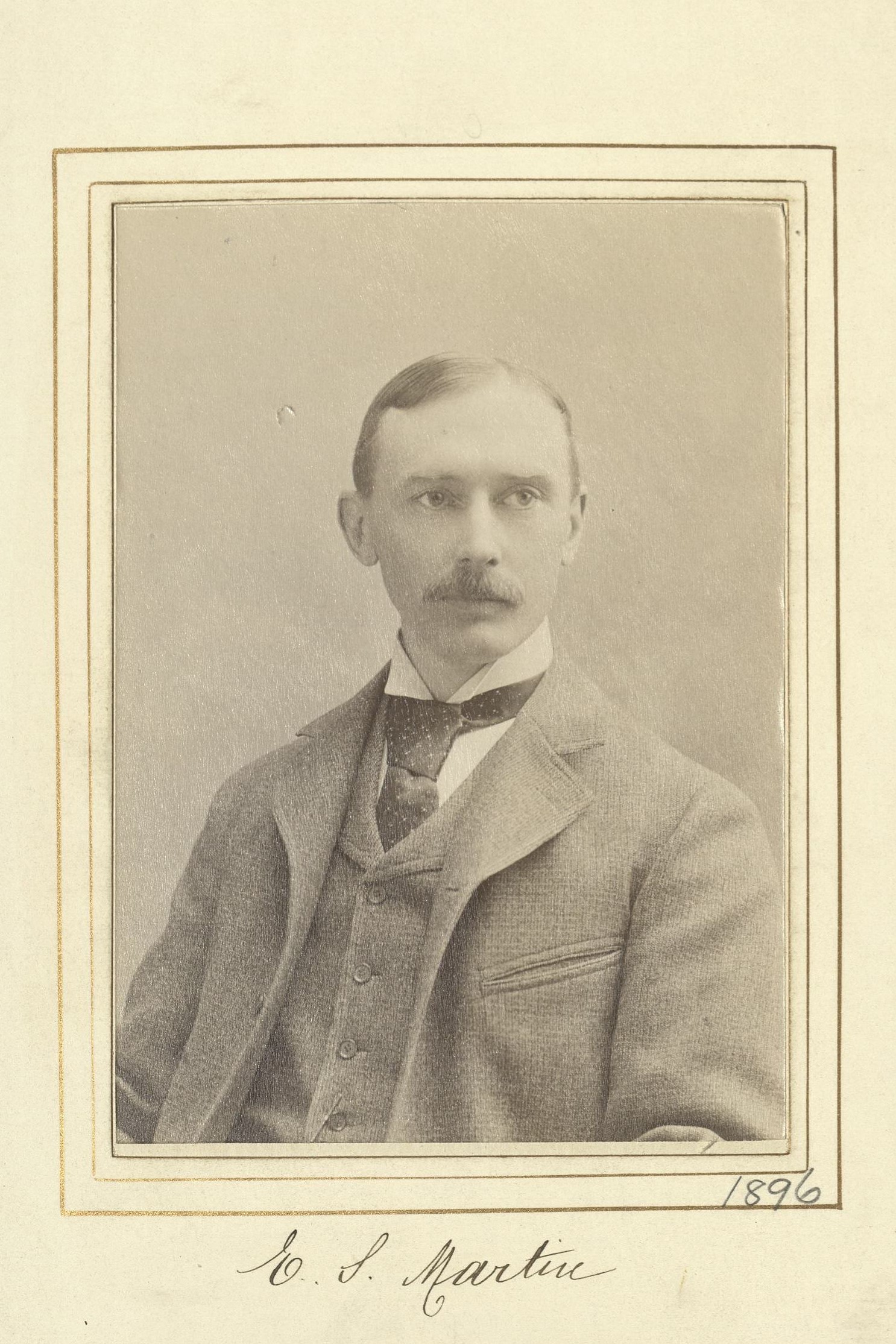Literature
Centurion, 1896–1939
Born 2 January 1856 near Auburn, New York
Died 13 June 1939 in New York (Manhattan), New York
Buried Hillside Cemetery , Wilton, Connecticut
, Wilton, Connecticut
Proposed by Henry Loomis Nelson and George Edward Woodberry
Elected 7 March 1896 at age forty
Archivist’s Note: Father of George W. Martin
Proposer of:
Seconder of:
Century Memorial
“Of course you know that his was a wise and sweet nature,” writes a literary Centurion, who was a college-mate of Edward Sandford Martin, in a letter to the Secretary of the Club. The Century does know, and will remember.
A founder of the Harvard Lampoon in 1876, Martin became the first editor of Centurion John A. Mitchell’s Life, of which Vol. I, No. 1 (fateful phrase in the world of periodicals!) appeared in January, 1883. Martin extricated himself from misalliances with law practice and daily journalism and steadied down to writing weekly editorials for Life. His next four decades were occupied with these, a regular page in Harper’s Weekly, “The Editor’s Easy Chair” in Harper’s Magazine, and several books including a biography of President Choate of the Century. Probably no other magazine editor of his time reached so large a proportion of the civilized public for which Martin wrote. In the ’nineties political writers and orators were often as violent as the “slang-whangers” ridiculed eighty years earlier in “Salmagundi” by Washington Irving. Martin got in his effective blows without rage or lost motion. It was not for violence that he was praised by Lloyd George as “the greatest editorial writer using the English language today.”
The publishing house of Centurion Henry R. Luce (born forty-two years after Martin) bought, for its name, the vestiges of Life in 1936. Martin, the only member of the 1883 board still active, wrote the valedictory of the expiring magazine and wished the new LIFE, under Luce’s editorship, “all good fortune, grace, mercy and peace and usefulness to a distracted world that does not know which way to turn nor what will happen to it next. A wonderful time for a new voice to make a noise that needs to be heard!”
It has been said that light verse is harder to write than serious poetry. Martin practiced successfully the more difficult art. In one of his books of verses he contributed to the language the phrase that describes the man devoted to the task of helping others to dispose of their superfluous wealth: “A little brother of the rich.”
Three years ago Martin wrote to his classmates: “None of us need ask for a livelier and more astonishing scene to view in his closing years . . . I am more than willing to keep an eye on it as long as my physical outfit retains its capacity, and I expect to be able to look on, perhaps take part, when that capacity has expired.” Undaunted by his deafness, Martin would sit at the long table, ask his neighbor some question and supply him with a pencil and a slip of blue paper for the answer. If his own mellow-crisp remarks—on the current social folly, the Egyptian Pyramids, English or American literature, politics, or immortality—had been written on those petits bleus and had been collected, what a treasure they would be for the Century Archives!
Geoffrey Parsons
1939 Century Memorials

